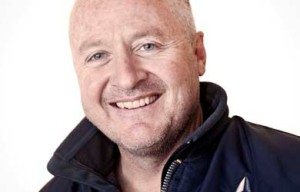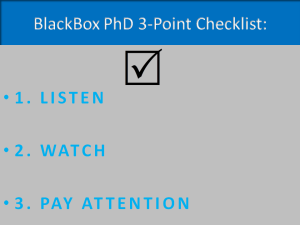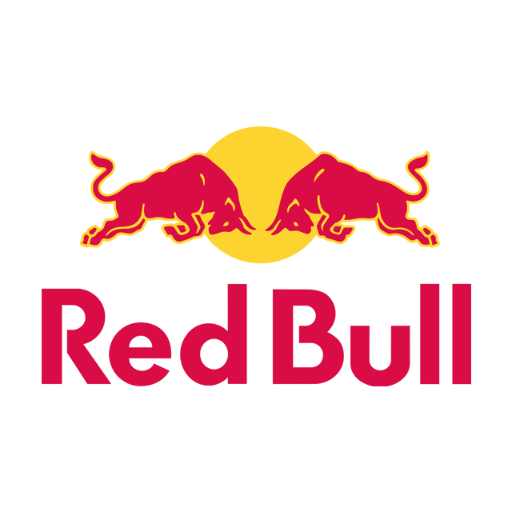Interview with Andy Walshe at Redbull High Performance: Hacking Extreme Creativity

What is a sport? The answer to that question used to be clear for Americans: Football, baseball, and basketball. But today the definition of sports is less clear. People are watching professional players play games like League of Legends. Ultimate Frisbee is being recognized by the Olympics. Felix Baumgartner is jumping from the edge of space as a sport. While football, baseball, and basketball are traditional sports that are here to stay, the Red Bull High Performance global athletes development program is taking a broad view of what it means to be an athlete and what it means to win and exploring that in a campaign they call “Hacking Creativity.” Dr. Andy Walshe, in charge of the campaign, has a Ph.D. in Applied Biomechanics and has worked with the US Olympic Ski and Snowboard teams. This week, Dr. Walshe will talk to us about how to get EXTREME and what makes athletes and artists alike.

What is your background and what drew you to exercise science? What are examples of people you worked with along the way?
I was always into sport and being from Australia (where sport is a way of life) there were great tertiary programs in sports, science and coaching that I was able to do as an undergraduate degree. In terms of the amazing people along the way, there are too many to mention here but I consider myself very fortunate to have been able to learn from so many talented people from so many diverse fields.
The Red Bull High Performance Program talks about “hacking creativity” and “hacking talent.” What does creativity have to do with athleticism and talent?
People at the top of their game regardless of profession, redefine the way in which their craft is seen…i.e. they redefine what’s possible in their chosen field. To this end, they are extraordinarily creative and they show us what is possible in their space!!!!!

How do you think people will be able to benefit from the research your group is doing on this topic? How will they be able to apply it in their lives or work?
We have a couple of big goals:
Firstly, dispel the old paradigm “I am not creative because I don’t paint” and in this regard help inform the conversation that everyone has creative potential. Recognizing this is a big opportunity.
Secondly, by looking at the myriad of ways in which people do create, we will hopefully spur the conversation around the opportunities to develop this as a discrete skill in and of itself.
What is the most unique problem you’ve had to solve?
With regards to “hacking talent” a profoundly difficult problem is to “measure what can’t be measured” as we say around the shop. One has to figure out ways to put some context (which hopefully leads to training outcomes) around all those important topics such as creativity, courage, resilience, humility, spirituality, integrity etc etc. These are equally as important in any conversation around an individual’s performance but they’re abstract by nature and so hard to frame up in a practical, developmental way.
Working in such a high stakes area where athletes can be injured or killed, what is your process for handling situations that don’t go as planned (e.g., people getting hurt)?
Training and preparation are the keys to this…of course things can and will go wrong but the aim is to put the individual’s safety as paramount. You also need to establish rigorous training and risk-profiling strategies and need to eliminate “to the extent it’s humanly possible” the opportunity for things to go wrong. In the end if you are going to push the limits of what is possible, it’s about taking calculated chances.
In your opinion, is human potential limitless or are there some extreme challenges that no amount of training could properly prepare someone for?
I am an optimist and so I don’t think there are any limits if you take the long term view…of course physical constraints aside as we know them now, who really can predict what form we will take both physically and psychologically in the next thousand years….I think humans will continue to redefine what’s possible as long as we keep evolving. I don’t see that nature has an end game in mind in this regard!!
How are “extraordinary people” similar and different from the rest of us?
I think at the fundamental level we are all more similar than we like to admit….be it by genetic advantage, circumstances or typically both it seems that some people are able to more fully explore the limits of their own potential……in some cases this shows us what’s possible at the limits of human achievement, in other cases it just gives us a better sense of ourselves.
If you were going to teach people how to hack creativity or talent, what 3 pieces of advice would you give to them?
Listen, watch and pay attention…everything we need to understand this question is right in front of us…..we just need to take the time to organize the extraordinary knowledge that already exists in the world and we can teach ourselves all we need to know!!!

Pingback: Pendaftaran SNMPTN 2018/2019
Pingback: מיזוג אוויר
Pingback: roofing
Pingback: jeux de friv
Pingback: mondo sonoro
Pingback: kari satilir
Pingback: masini inghetata
Pingback: IN Vitro ADME
Pingback: Wedding Planning Companies in Hyderabad
Pingback: how to lose weight with hypothyroidism
Pingback: Iraq coehuman
Pingback: Best Engineer Aws Alkhazraji44
Pingback: DMPK Studies CRO
Pingback: Pharmacokinetic Studies
Pingback: forex robots
Pingback: forex indicators
Pingback: bing ads guarantee gurus
Pingback: green coffee
Pingback: 검증사이트
Pingback: Ambika Ahuja Jaipur Escorts
Pingback: XXX JAIPUR ESCORTS ALIYA SINHA
Pingback: XXX JAIPUR ESCORTS MODEL DRISHYA
Pingback: Jiya Malik High Profile Jaipur Escorts Model
Pingback: XXX FUN WITH JAIPUR ESCORTS PUJA KAUR
Pingback: XXX BANGALORE ESCORTS
Pingback: Selly Arora Independent Bangalore Escorts
Pingback: Enjoy With Jaipur Escorts Tanisha Walia
Pingback: Bristy Roy Independent Bangalore Escorts
Pingback: Bangalore Escorts Sneha Despandey
Pingback: Recipe Videos
Pingback: best barbershops in birmingham al
Pingback: forex signals
Pingback: cash advances
Pingback: astrology love calculator
Pingback: primobol 100
Pingback: Cheap hoverboard
Pingback: Banja Luka
Pingback: boutique en ligne
Pingback: Ruby Sen Kolkata Independent Escorts
Pingback: Diana Diaz Goa Independent Escorts Services
Pingback: Diksha Arya Independent Escorts Services in Kolkata
Pingback: Go Here
Pingback: Devika Kakkar Goa Escorts Services
Pingback: Rebecca Desuza Goa Independent Escorts Services
Pingback: Yamini Mittal Independent Escorts Services in Goa
Pingback: Simmi Mittal Kolkata Escorts Services
Pingback: Kolkata Escorts Services Ragini Mehta
Pingback: Navya Sharma Independent Kolkata Escorts Services
Pingback: Elisha Roy Goa Independent Escorts Services
Pingback: Alisha Oberoi Kolkata Escorts Services
Pingback: laws
Pingback: Divya Arora Goa Independent Escorts Services
Pingback: Simran Batra Independent Escorts in Kolkata
Pingback: Ashna Ahuja Escorts Services in Kolkata
Pingback: Sofia Desai Escorts Services in Goa
Pingback: Goa Escorts Services Drishti Goyal
Pingback: Mayra Khan Escorts Services in Kolkata
Pingback: Sruthi Pathak Escorts in Bangalore
Pingback: Ambika Ahuja Jaipur Escorts Services
Pingback: Sruthi Pathak Bangalore Female Escorts
Pingback: Sruthi Pathak Bangalore Escorts Services
Pingback: Trully Independent Bangalore Escorts Services
Pingback: Trully Independent Bangalore Escorts
Pingback: Fiza Khan Kolkata Independent Call Girls Services
Pingback: Ruchika Roy Kolkata Escorts Call Girls Services
Pingback: 2019
Pingback: nsfwtophookup.eu nsfwtophookup.eu Hookup
Pingback: cleantalkorg2.ru
Pingback: #macron #Lassalle
Pingback: a2019-2020
Pingback: facebook
Pingback: facebook1
Pingback: javsearch.mobi
Pingback: Kolkata Escorts
Pingback: Escorts in Kolkata
Pingback: Fiza Khan Kolkata Independent Escorts Call Girls Services
Pingback: Fiza Khan Kolkata Call Girls Escorts Services
Pingback: Diksha Arya Kolkata Escorts Call Girls Services
Pingback: best executive resume services
Pingback: Cheap
Pingback: Nidika Offer Call Girls in Bangalore
Pingback: WOW Site Blog Name
Pingback: xxlhq.top article
Pingback: xxlhq.xyz article
Pingback: xxlph.xyz article
Pingback: xxxpics xyz
Pingback: xxlph xyz
Pingback: xxxpics.xyz article
Pingback: xxxph top
Pingback: xxlph.top article
Pingback: xyz
Pingback: xxxhd.top article
Pingback: xnxxhd top
Pingback: xxxhq top
Pingback: xxlhd xyz
Pingback: adultpics top
Pingback: xxxhq.top article
Pingback: xxxph xyz
Pingback: adulthq.xyz article
Pingback: adultph.top article
Pingback: xnxxhd.top article
Pingback: xxlhd.xyz article
Pingback: xxlhq xyz
Pingback: xxlph top
Pingback: adultph top
Pingback: adulthq.top article
Pingback: xxlhq top
Pingback: adulthd top
Pingback: adulthd xyz
Pingback: adulthd.top article
Pingback: adulthq xyz
Pingback: adultph.xyz article
Pingback: xxxph.xyz article
Pingback: xxxhd top
Pingback: adulthd.xyz article
Pingback: we-b-tv.com
Pingback: tureckie_serialy_na_russkom_jazyke
Pingback: Ñìîòðåòü âñå ñåðèè ïîäðÿä
Pingback: wwin-tv.com
Pingback: Hyderabad Escorts Call Girls Services
Pingback: Pune Escorts Services Call Girls
Pingback: movies
Pingback: movies online
Pingback: karan johar
Pingback: Top Movies
Pingback: Movies1
Pingback: 11 10 2019
Pingback: Bangalore Cheap Escorts Sevices
Pingback: smotretonline2015.ru
Pingback: Serial smotret
Pingback: kinokrad
Pingback: kinokrad 2020
Pingback: Watch TV Shows
Pingback: casino
Pingback: Kinokrad 2019 Kinokrad Hd
Pingback: serial 5
Pingback: youtube2019.ru
Pingback: dizajn cheloveka
Pingback: canadianpharmacytpah.com
Pingback: psyhelp_on_line
Pingback: coronavirus
Pingback: PSYCHOSOCIAL
Pingback: rasstanovka hellinger
Pingback: Goa Escorts Call Girls Services
Pingback: Bangalore Escorts Services
Pingback: bitly.com
Pingback: moskva-psiholog
Pingback: dom2-ru
Pingback: krsmi.ru
Pingback: canadian express pharmacy
Pingback: medicine without dr prescription
Pingback: CFOSPUK
Pingback: MAMprEj
Pingback: fgu0ygW
Pingback: where can i buy amoxicillin over the counter
Pingback: 44548
Pingback: personal loans with no credit check
Pingback: buy Doxycyline
Pingback: website
Pingback: zithromax 250 mg pill
Pingback: best ed drugs
Pingback: Plaquenil
Pingback: approved canadian online pharmacies
Pingback: approved canadian online pharmacies
Pingback: what antibiotic for urinary tract infection
Pingback: can you buy zithromax over the counter
Pingback: zyrtec 10 mg price canada pharmacy
Pingback: benadryl capsule price in india
Pingback: buy zithromax without presc
Pingback: amoxicillin cost australia
Pingback: compare pharmacy prices for prescriptions
Pingback: sildenafil 20 mg tablet
Pingback: cheapest ed pills online
Pingback: compare ed drugs
Pingback: ed treatment review
Pingback: lasix medication
Pingback: order minomycin online
Pingback: cephalexin online
Pingback: bactrim online
Pingback: buy omnicef online
Pingback: india pharmacy mail order
Pingback: purchase zithromax z-pak
Pingback: liga spravedlivosti 2021
Pingback: cheap ed pills
Pingback: where to buy zithromax in canada
Pingback: neurontin 100 mg cost
Pingback: where can i purchase zithromax online
Pingback: online medications from india
Pingback: trusted india online pharmacies
Pingback: The Revenant
Pingback: amoxicillin generic brand
Pingback: buy finasteride online
Pingback: propecia costs
Pingback: generic ed pills
Pingback: the best ed pills
Pingback: link
Pingback: promo code for canadian pharmacy meds
Pingback: online canadian pharmacy reviews
Pingback: canada online
Pingback: psy
Pingback: psy2022
Pingback: kinoteatrzarya.ru
Pingback: zestril drug
Pingback: lisinopril 10 mg no prescription
Pingback: afisha-kinoteatrov.ru
Pingback: natural pills for ed
Pingback: non prescription ed drugs
Pingback: top ed pills
Pingback: errectile dysfunction
Pingback: what causes ed
Pingback: erection problems
Pingback: ivermectin brand name
Pingback: stromectol where to buy
Pingback: hydroxychloroquine sulfate tablets 200 mg
Pingback: plaquenil cost in canada
Pingback: ivermectin tablets
Pingback: stromectol pill
Pingback: stromectol covid
Pingback: ivermectin 8 mg
Pingback: home remedies for erectile dysfunction
Pingback: natural ed treatments
Pingback: can ed be reversed
Pingback: where can i buy zithromax capsules
Pingback: zithromax cost
Pingback: zithromax price south africa
Pingback: cost of ivermectin lotion
Pingback: buy liquid ivermectin
Pingback: treat ed
Pingback: ed meds online without doctor prescription
Pingback: plaquenil oct
Pingback: plaquenil 800 mg
Pingback: prednisone 20mg capsule
Pingback: no prescription prednisone canadian pharmacy
Pingback: medication from canada prices
Pingback: medication from canada prices
Pingback: ivermectin brand name
Pingback: ivermectin 50ml
Pingback: ivermectin rx
Pingback: natural help for ed
Pingback: best ed medications
Pingback: male ed
Pingback: ivermectin 1
Pingback: ivermectin 5 mg price
Pingback: ed drugs list
Pingback: canadian drug prices
Pingback: what happens when you stop taking tamoxifen
Pingback: tamoxifen and antidepressants
Pingback: online prednisone
Pingback: buy prednisone canadian pharmacy
Pingback: prednisone 2.5 mg price
Pingback: generic ivermectin
Pingback: ivermectin iv
Pingback: ivermectin 5
Pingback: ed drugs online from canada
Pingback: comfortis for dogs without vet prescription
Pingback: canadian pharmacy online
Pingback: how can i order prednisone
Pingback: prednisone tablets 2.5 mg
Pingback: otc prednisone cream
Pingback: ivermectin 80 mg
Pingback: stromectol for sale
Pingback: ivermectin 500ml
Pingback: generic ed pills from canada
Pingback: cheap generic ed pills
Pingback: buy generic drugs online
Pingback: hydroxychloroquine 200mg
Pingback: hydroxychloroquine 200mg 60 tablets
Pingback: ivermectin lice
Pingback: plaquenil headache
Pingback: ivermectin price usa
Pingback: ivermectin syrup
Pingback: ivermectin eye drops
Pingback: ivermectin pill cost
Pingback: ivermectin otc
Pingback: erectile dysfunction pills
Pingback: cheapest ed pills online
Pingback: stromectol xr
Pingback: ivermectin human
Pingback: stromectol otc
Pingback: online rx pharmacy
Pingback: ed meds online without doctor prescription
Pingback: online pharmacies canada
Pingback: Requip
Pingback: prescription drugs from canada online
Pingback: quit smoking
Pingback: online pharmacies legitimate
Pingback: ivermectin 50ml
Pingback: ivermectin 4000 mcg
Pingback: zithromax for sale 500 mg
Pingback: prescription drugs online without doctor
Pingback: molnupiravir
Pingback: ivermectin 2%
Pingback: stromectol xr
Pingback: stromectol 3 mg price
Pingback: ivermectin dosage for humans lice
Pingback: hdorg2.ru
Pingback: indianpharmacy com
Pingback: medical pharmacy west
Pingback: ciprofloxacin generic price
Pingback: best ed pills non prescription
Pingback: plenty of fish dating
Pingback: meet singles online
Pingback: tamiflu over the counter
Pingback: xxx
Pingback: over the counter pill identifier
Pingback: over the counter estrogen
Pingback: buy zithromax without prescription online
Pingback: buy ivermectin nz
Pingback: where can i buy cheap avodart without a prescription
Pingback: male erection pills
Pingback: canadian medications
Pingback: prescription drugs
Pingback: can you buy propecia without a prescription
Pingback: best online canadian pharmacy
Pingback: mexican pharmacies shipping to usa
Pingback: prescription drugs canada buy online
Pingback: trusted canadian pharmacy
Pingback: ciprofloxacin 500mg buy online
Pingback: cipro 500mg best prices
Pingback: top 10 pharmacies in india
Pingback: india online pharmacy
Pingback: buy generic ciprofloxacin
Pingback: russian escorts in delhi
Pingback: how to buy cheap propecia without insurance
Pingback: online ed medication no prescription
Pingback: ghaziabad escorts
Pingback: ghaziabad escorts
Pingback: best male ed pills
Pingback: mens ed pills
Pingback: prednisone 2.5 tablet
Pingback: canadian drugs
Pingback: Online medicine order
Pingback: Paxlovid buy online
Pingback: paxlovid buy
Pingback: amoxicillin online purchase
Pingback: over the counter amoxicillin canada
Pingback: best online canadian pharmacy
Pingback: canadian pharmacy mall
Pingback: where to buy ivermectin pills
Pingback: ivermectin 1 topical cream
Pingback: cytotec abortion pill
Pingback: buy cytotec
Pingback: mexico drug stores pharmacies
Pingback: medicine in mexico pharmacies
Pingback: Kamagra Oral Jelly buy online
Pingback: cost of ivermectin cream
Pingback: ivermectin uk coronavirus
Pingback: escrrr
Pingback: indre
Pingback: lcknw
Pingback: cgl
Pingback: noida escorts
Pingback: jaipur girl
Pingback: russian
Pingback: call girls in dehradun
Pingback: cg
Pingback: cgs
Pingback: cgd
Pingback: cgls
Pingback: hdwre
Pingback: cg mussorie
Pingback: Dehradun Escorts
Pingback: kol
Pingback: doon
Pingback: dncg